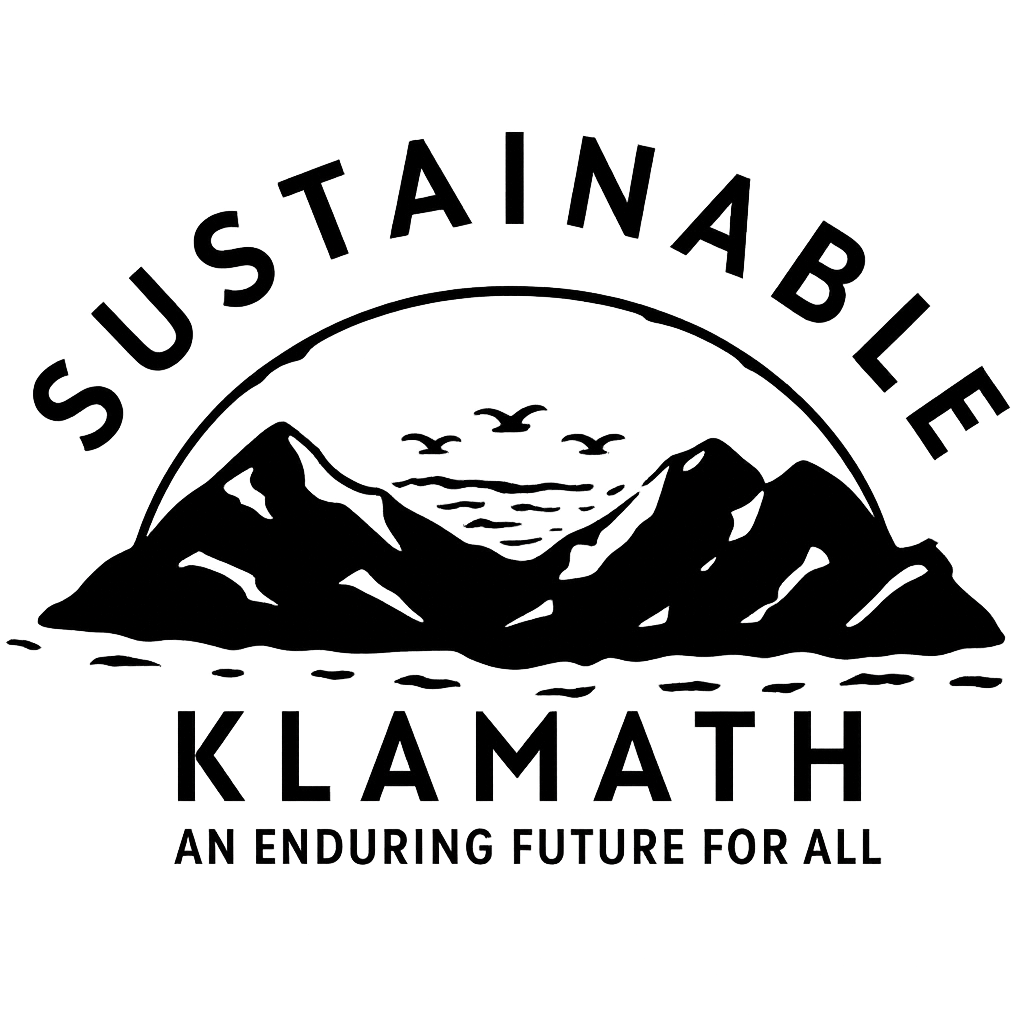by Alissa Oliverson, August 2020
Trash Talk Series from Sustainable Klamath, Solid Waste Action Committee (SWAC)
As plastic pollution continues to cause problems around the world, communities and nations are looking for a holistic solution, part of which could be holding producers responsible for the environmental impacts of their products.
A new report by PEW suggests that if we continue business as usual and stay in a holding pattern with the current government and industry commitments to reducing plastic waste, by 2040 we will have reduced the amount of plastic in the oceans by only 7%. Worse yet, if we backslide on these commitments, the amount of plastic waste in the oceans could triple by 2040. But, if we take ambitious action now, invest in a new worldview and system, we can reduce plastic waste in the oceans by 80% by 2040.
We have all heard the truth by now: it is impossible to recycle our way out of our plastic pollution problem. Massive shifts in overseas markets have put financial pressure on recycling systems, and new challenges arise every day with the ever-increasing volume of waste society produces.
This reality has stimulated the awakening of people’s environmental consciousness, and it has created a space for a new conversation that demands real solutions to our plastic pollution problem. This does not mean we should give up on recycling, rather that we need to find viable ways to supplement recycling as we move toward the zero-waste pinnacle of sustainability. Enter: Extended Producer Responsibility (EPR).
Originally proposed by Thomas Lindhqvist in a 1990 report to the Swedish Ministry of the Environment, Extended Producer Responsibility is a waste reduction strategy. It suggests that manufacturers and all entities in the product chain should bear a significant amount of responsibility for the environmental impacts of their products, from cradle to grave.
With this new level of responsibility, EPR would naturally encourage innovation in product design to minimize negative impacts on human health and the environment at every stage. It would encourage the simplification and streamlining of products to make them more reusable and/or recyclable, and less costly. Ideally, EPR policies would make our linear “produce-use- dispose” system less wasteful and more efficient, more like a closed-loop, with the potential for new profits and new markets to emerge – markets that reflect the true environmental impacts of a product. Think of it this way: in providing better products and processes, producers can help fix the problems they created, prevent them in the future, and make better money. Everybody wins.
We have already seen examples of Extended Producer Responsibility in action. Bottle Bills, like Oregon’s Bottle Drop, are one of the earliest forms of EPR. Electronic equipment take-back programs are another example. Dell has been taking back its obsolete electronics for free and recycling them since 2006. In the 1990’s, Nike launched their Reuse-A-Shoe program, which continues to this day, collecting used sneakers of any brand and turning them into material that can be, and has been used in a variety of ways. These and other examples of EPR may not be perfect, but they are valuable in promoting the necessary transition to a circular economy, which could be a huge part of the solution to our plastic pollution problem.
As we begin to explore the potential of Extended Producer Responsibility, it is important to remember that this is about a shift in the way we think about people, planet, and profits. Current corporate objectives to maximize profits might not work with the environmental values necessary to clean up and prevent future messes. So, new, transparent policies will need to be created, and public oversight must be maintained. We will need to ensure that EPR policies don’t just allow a “pay to pollute” economic arena, wherein producers pay offset fees to continue their business-as-usual, manufacturing single-use and unnecessary plastic products. Consumers and producers alike will need to allow a new worldview to direct our best actions toward a zero- waste reality.
We have all heard the truth by now: our plastic pollution problem is dire, and we must act now to mitigate the negative consequences. Downstream solutions like recycling are not the only answer. We must also look upstream, to the producers. We must demand that producers participate in our new paradigm where we put the environment first. They must innovate their products. Producers must work in harmony with nature to create environmentally responsible products, packaging, and practices that do not further harm our environment, but work with it long into the future – and help to heal the damage that has already been done.
New EPR policies will no doubt be coming soon to our community, and as one avenue toward a plastic pollution solution, Extended Producer Responsibility is something we cannot afford to trivialize or ignore.
If you would like to take action, you can visit our SWAC page and use our EPR form letter in an email to your representative or even to your favorite company/producer.
